The alluring world of fragrance holds a captivating history, one that stretches back millennia. But have you ever stopped to wonder about the very word we use to describe these delightful scents - perfume? The answer, like the best perfumes themselves, is a captivating blend of history, language, and cultural practices.
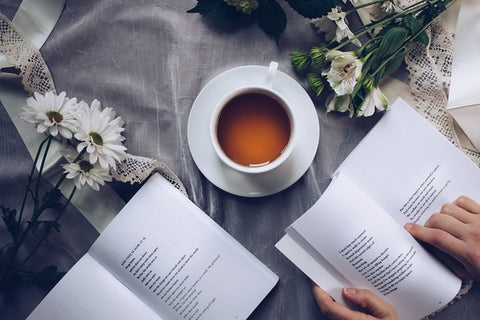
Through Smoke We Find Fragrance: Unveiling the Latin Roots
Our exploration begins with the evocative phrase "per fumum," a Latin expression that literally translates to "through smoke." This isn't just a dusty relic of a dead language; it holds the key to understanding the very essence (pun intended) of perfume. In the earliest civilizations, the allure of fragrance wasn't achieved through dainty bottles and spritzes, but through the billowing clouds of aromatic smoke that filled the air.
Mesopotamia: The Cradle of Incense
The fertile crescent of Mesopotamia, encompassing present-day Iraq, Kuwait, Syria, and Turkey, is considered the cradle of perfumery. Archaeological evidence suggests that the use of scented smokes dates back to a staggering 3500 BC. Here, fragrant resins like frankincense and myrrh, along with aromatic woods like cedar and cypress, were burned in elaborate rituals. The smoke wasn't simply a byproduct; it was a conduit for connecting with the divine, believed to appease the gods and ward off evil spirits.
Interestingly, the world's first recorded chemist, a woman named Tapputi, hailed from Mesopotamia. Though details are scarce, historical references suggest she was a perfume maker, formulating fragrant blends likely used for religious ceremonies and possibly for medicinal purposes. Imagine a pioneering female chemist leading the charge in fragrance creation millennia ago!
Egyptian Obsession: From Tombs to Temples
Across the vast desert sands, the Egyptians became equally enthralled by the power of scent. Their obsession with perfumery permeated every aspect of life, from the sacred to the profane. Elaborate incense burners adorned temples, where fragrant smoke billowed upwards, filling the air with offerings to the gods. Tombs were meticulously prepared with scented resins and oils, not just to preserve the body but also to imbue the deceased with a pleasant aroma in the afterlife.
The Egyptians, however, weren't content with simply burning fragrant materials. They developed innovative techniques to extract the very essence of these aromatics. One such method, called maceration, involved soaking botanicals in oil, allowing the oil to absorb the concentrated fragrance. This fragrant oil, the precursor to modern perfume oils, was then used in a variety of ways: for anointing themselves and their pharaohs, for scenting clothing and linens, and even for medicinal purposes.
The Egyptians' pursuit of fragrance wasn't just about masking body odor (although that likely played a role in the hot desert climate). They believed that scent had the power to heal, to beautify, and to connect with the spiritual realm. From the elaborate smoke-filled ceremonies to the development of techniques for extracting fragrance, the Egyptians were instrumental in laying the groundwork for the world of perfumery as we know it.
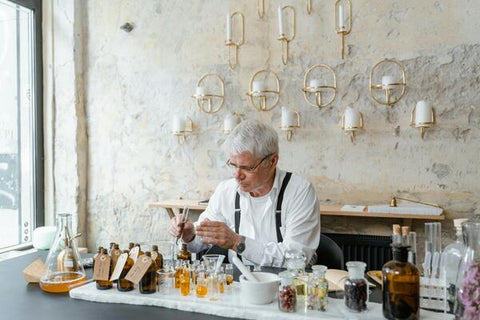
From Burning to Bottles: The Evolution of Perfume Application
The captivating dance of smoke and fragrance continued for centuries, but a revolutionary change was brewing in the Islamic world. Around the 8th-10th centuries AD, alchemists made a groundbreaking discovery - the art of distillation. This technique, which involved heating plant material with water vapor to capture the concentrated essence, opened a new chapter in perfumery history.
For the first time, perfumers could extract the very soul of a plant - its essential oil. This precious liquid held a far more potent and concentrated fragrance than what could be achieved through burning alone. Essential oils offered perfumers a wider palette of aromas to work with, allowing them to create more complex and nuanced scents.
The Birth of Liquid Perfume:
With this newfound abundance of essential oils, a dramatic shift occurred in perfume application. Perfumers began crafting liquid perfumes specifically designed for direct application onto the body or clothing. These early iterations were often oil-based, infused with a high concentration of essential oils. Imagine the heady, head-turning effect these potent concoctions must have had!
However, creating a truly delightful liquid perfume wasn't as simple as just mixing essential oils with oil. Perfumers needed a way to not only capture the fragrance but also to ensure it lingered pleasantly. This is where the art of perfumery truly blossomed. Perfumers experimented with various base ingredients like animal fats (later replaced with more pleasant options like musk and ambergris) to hold the fragrance and allow it to slowly release its aroma throughout the day.
The Fragrance Highway: Trade Routes and the Spread of Perfume Knowledge
The allure of these intoxicating liquid perfumes transcended borders. Trade routes, particularly the Silk Road, became a fragrant highway, carrying not just silks and spices but also the knowledge and techniques of perfume creation from the East to Europe. By the 14th century, Europe was abuzz with the art of perfumery, with centers like France and Italy emerging as leaders in the fragrant game.
The arrival of liquid perfumes wasn't just a shift in application; it signaled a new era of social significance. These potent elixirs became symbols of wealth and status. The nobility and aristocracy adorned themselves with the most luxurious and rare fragrances, using them to distinguish themselves from the common folk. Perfumery workshops flourished, catering to the growing demand for these exquisite and highly sought-after scents.
However, the story doesn't end there. The evolution of perfume application continued with the invention of the alcohol-based perfume in the 14th century. This innovation not only offered a lighter and more pleasant way to wear fragrance but also paved the way for the vast array of perfume concentrations and types we enjoy today.
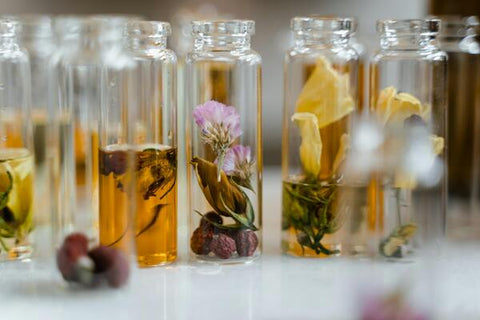
The Lingering Legacy: Perfume and the Modern World
The journey from "per fumum" to "perfume" culminated in the 14th century when the English language adopted the word "perfume," directly borrowed from the French "parfum." While the ritualistic burning of incense continues to hold profound cultural significance in many parts of the world, particularly in religious ceremonies, liquid perfumes became the dominant form of fragrance application.
The Art of the Modern Perfumer
Fast forward to today, and perfume creation has blossomed into a meticulously crafted art form. Perfumers, affectionately known as "noses," are the masterminds behind these fragrant creations. Imagine a skilled artist wielding a palette, except instead of paints, their tools are essential oils, synthetic aroma chemicals, and fixatives. Each ingredient possesses a unique character, and the perfumer's artistry lies in meticulously blending them to create a harmonious and captivating scent.
The world of a perfumer is one of meticulous precision and boundless creativity. They source the finest raw materials from around the globe, from the heady rose absolute of Bulgaria to the earthy patchouli oil of Indonesia. Synthetic aroma chemicals, developed in the 19th century, offer an even wider palette, allowing perfumers to recreate natural scents with remarkable accuracy or even invent entirely new ones.
The process of creating a perfume is a symphony of experimentation and refinement. Perfumers may spend months, even years, crafting a single scent, going through countless iterations before they achieve the desired olfactory masterpiece. This meticulous dedication ensures that each spritz of perfume is an experience, a carefully orchestrated blend that tells a story and evokes emotions.
A World of Fragrant Delights
The modern fragrance world caters to every taste and desire. From the timeless elegance of classic floral scents like rose and jasmine to the bold and innovative compositions that push the boundaries of fragrance, there's a perfume out there for everyone.
Concentration plays a key role in the world of perfumes. Eau de toilette, often referred to as EDT, boasts a lower concentration of fragrance oils (typically 5-15%) resulting in a lighter and shorter-lasting scent. Eau de parfum, or EDP, offers a more intense experience with a higher concentration of fragrance oils (15-25%) that lingers for several hours. Finally, perfume extract, the most luxurious and concentrated form (25-40% fragrance oils), provides the most potent and long-lasting fragrance experience.
The impact of perfume extends beyond personal aesthetics. Aromatherapy, the practice of using essential oils for therapeutic purposes, continues to gain traction, with certain scents believed to promote relaxation, improve mood, and even alleviate physical ailments. The evocative power of fragrance can transport us to a cherished memory, boost our confidence, or create a certain atmosphere.
A Legacy that Endures
From the smoky beginnings of ancient rituals to the meticulously crafted elixirs of today, "perfume" embodies a captivating legacy. It represents not just a pleasant olfactory experience but also a testament to human ingenuity, cultural significance, and the enduring desire to smell good and feel good. As perfumers continue to explore new techniques and ingredients, the future of perfume promises to be as exciting and multifaceted as its past.
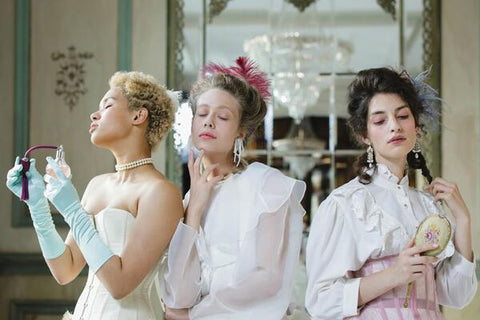
Beyond the Bottle: The Cultural Significance of Perfume
Perfume transcends the realm of simply a pleasant smell. Throughout history, it has woven itself into the very fabric of various cultures, playing a significant role in:
- Religious Ceremonies and Rituals: The connection between fragrance and the divine stretches back millennia. In ancient Egypt, elaborate incense ceremonies filled temples with fragrant smoke, believed to appease the gods and act as offerings. Similar practices continue in many religions today. The Catholic Church uses incense during mass, while Hinduism incorporates fragrant offerings like agarbatti (incense sticks) in pujas (worship rituals). These aromatic rituals create a sacred atmosphere, signifying reverence and a connection with the spiritual realm.
- Social Status and Identity: Perfumes have long been a potent symbol of wealth, power, and social standing. In ancient Mesopotamia and Egypt, only royalty and high priests had access to the most precious and expensive fragrances. During the Renaissance in Europe, elaborate scented gloves became a fashion statement for the aristocracy, a way to display their refined tastes and social superiority. Even today, certain perfumes carry an aura of exclusivity, their high price tags and limited availability signifying a certain status symbol.
- Aphrodisiacs and Love Potions: The seductive power of fragrance has captivated cultures for centuries. Legends abound of love potions and aphrodisiacs believed to ignite passion and attraction. In ancient Greece, women used fragrant oils like rose and jasmine to entice potential suitors. Similarly, Cleopatra of Egypt was said to have bathed in milk and honey, creating a captivatingly scented aura. While the effectiveness of these historical concoctions may be debatable, the belief in the power of perfume to influence attraction remains a fascinating cultural facet.
- Cultural Expression and Personal Identity: Beyond social status, perfumes can also be a form of personal expression, reflecting an individual's personality, mood, or cultural background. In some Middle Eastern cultures, oud, a rich and smoky resinous scent, is a popular choice for both men and women, reflecting cultural heritage and tradition. In Japan, the art of Kodo (the Way of Incense) is a highly refined practice, where participants appreciate the subtle nuances of different incense fragrances and their connection to mindfulness and self-discovery. Perfumes can also be a bridge between cultures. Immigrants often use familiar scents to connect with their heritage while navigating new environments.
- Aromatherapy and Wellbeing: The therapeutic potential of fragrance has been recognized for centuries. Ancient Egyptians and Chinese cultures used essential oils for various ailments. Today, aromatherapy continues to gain traction, with certain scents believed to promote relaxation (lavender), improve mood (citrus), or even alleviate headaches (peppermint). The science behind aromatherapy is still evolving, but the anecdotal evidence of its calming and invigorating effects is undeniable.
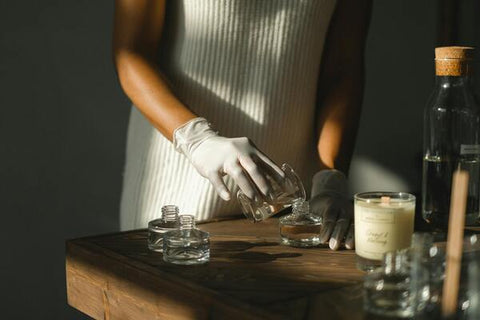
A Fragrant Future: The Enduring Allure of Perfume
The journey of "perfume" from smoky wisps to bottled elixirs embodies a captivating evolution. While the word itself may have originated with burning incense, its meaning has blossomed alongside the ever-evolving art of perfumery. Today, perfume represents a vast and fascinating world of fragrance, offering not only a delightful sensory experience but also a window into a rich cultural tapestry and a glimpse into a future brimming with exciting possibilities.
A Universe of Scents: The modern fragrance world is a kaleidoscope of olfactory experiences. Gone are the days of limited options. Perfumers, armed with a vast palette of natural and synthetic aroma chemicals, can create scents that are as diverse as human imagination itself. From the photorealistic renditions of a blooming rose garden to the abstract and futuristic compositions that defy categorization, there's a perfume out there to awaken every olfactory desire.
Sustainable Practices and Ethical Sourcing: As environmental consciousness takes center stage, the future of perfume embraces sustainability. Perfumers are increasingly seeking ethically sourced natural ingredients, working with farmers who employ responsible cultivation practices. Advances in biotechnology offer exciting alternatives, with the potential to create lab-grown versions of precious natural materials like rose oxide or sandalwood. This not only ensures the longevity of these rare resources but also minimizes the environmental impact of the fragrance industry.
The Rise of Niche Perfumery: The fragrance landscape is no longer dominated by a few big brands. A burgeoning niche perfumery movement is flourishing, with independent perfumers crafting unique and artistic scents in small batches. These "olfactive rebels" prioritize creativity and high-quality ingredients, offering a more personalized and often more daring approach to fragrance. The rise of niche perfumery allows for a more dynamic and diverse fragrance landscape, catering to those who seek scents that are more than just mainstream crowd-pleasers.
Technology and the Future of Olfaction: Technology is poised to play a transformative role in the future of perfume. Imagine a world where you can personalize your scent through digital fragrance diffusers or even have your mood translated into a bespoke olfactory experience. Advancements in scent delivery systems are also on the horizon, with the potential for long-lasting, encapsulated fragrances that release slowly throughout the day. These innovations promise to revolutionize the way we wear and experience perfume.
The Enduring Power of Scent: Despite the ever-changing landscape, one thing remains constant: the enduring power of scent. Perfume has the unique ability to evoke emotions, trigger memories, and create a lasting impression. It can be a confidence booster, a conversation starter, or simply a way to express our personal style.
Conclusion
The next time you spritz on your favorite perfume, close your eyes and take a deep breath. Let the scent transport you on a captivating olfactory journey that transcends time and cultures. Imagine yourself not in a modern department store, but in the heart of ancient Mesopotamia, surrounded by billowing clouds of fragrant smoke rising from burning incense during a sacred ritual.
This smoky aroma, the very essence of "per fumum," laid the groundwork for our modern concept of perfume. It wasn't just about masking body odor (although that likely played a role); it was a way to connect with the divine, to imbue the air with an air of mystery and sanctity. Fast forward a few millennia, and we find ourselves in opulent Egyptian palaces, where royalty bathed in perfumed oils and adorned themselves with fragrant concoctions. The art of perfume creation had evolved, with techniques like maceration allowing for the extraction of the concentrated essence of flowers, resins, and woods. These precious aromatic oils weren't just for the elite; they were used for everything from embalming the dead to scenting clothing and linens.
The journey continues through bustling trade routes, carrying the knowledge of perfume-making from East to West. By the time we reach Europe in the Renaissance, perfume has become a symbol of social status. The nobility flaunted their wealth with elaborate scented gloves and luxurious fragrances, each spritz a declaration of their refined tastes and privileged position. The word "perfume" itself entered the English language around this time, forever linking the evocative power of scent with this rich historical tapestry.
But the story doesn't end there. The invention of alcohol-based perfumes in the 14th century revolutionized application, paving the way for the vast array of perfumes we know today. Modern perfumery is a complex art form, with skilled "noses" meticulously blending a symphony of natural and synthetic ingredients to create unique and captivating scents. From the timeless elegance of a rose fragrance to the daringly avant-garde compositions that push olfactory boundaries, there's a perfume for every mood, memory, and desire.
So, the next time you indulge in your favorite scent, remember, it's not just a delightful fragrance. It's a testament to human ingenuity, a whisper of ancient rituals, and a symbol of our enduring desire to smell good, feel confident, and leave a lasting impression on the world, one spritz at a time.

